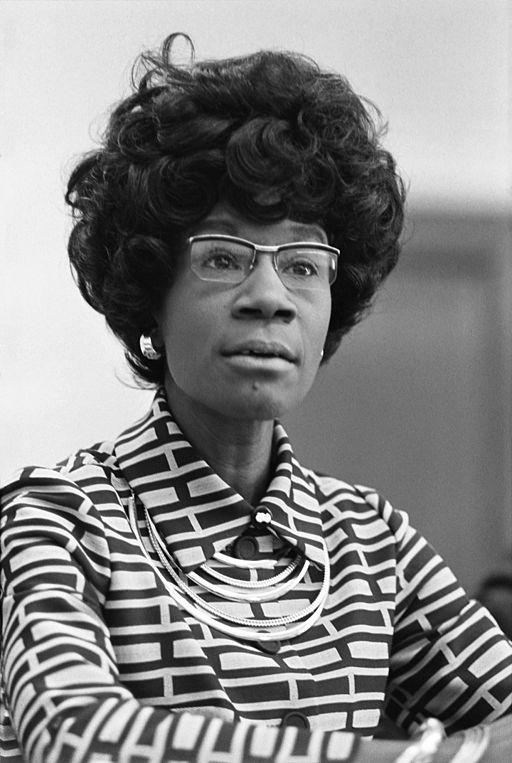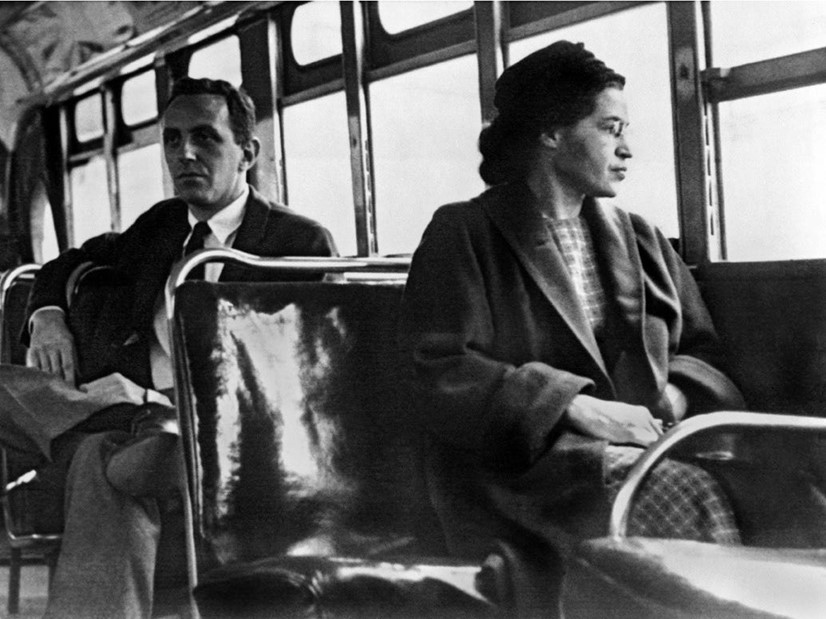Black History Month
Highlighting the contributions that Black Americans have made to history and to the creation of our programs.

Highlighting the contributions that Black Americans have made to history and to the creation of our programs.
Black History Month is a celebration of achievements and accomplishments by Black Americans. It is also a time to recognize the role that Black Americans have had in shaping in U.S. history. During February, Opportunities for Otsego will highlight a few influential black anti-poverty advocates.
 Ertharin Cousin is a human rights advocate promoting food security and assistance for the most marginalized populations in the world. Her work towards bringing an end to hunger earned her a spot on both Forbes Magazine’s List of the World’s 100 Most Powerful Women and the TIME 100 Most Influential People in the World. As Executive Vice President and Chief Operating Officer for America’s Second Harvest, Cousin led the effort in relief for survivors of Hurricane Katrina, distributing more than 62 million pounds of food. She was nominated by President Barack Obama to become United States Ambassador to the United Nations Agencies for Food and Agriculture. Here, most notably, she made great strides in providing relief to communities devastated by the 2010 Haiti earthquake. Most recently, she served for five years as the Executive Director of the United Nations World Food Program from 2012 to 2017 where she promoted sustainable change and capacity building among communities fighting hunger. Also while executive director, she become a member of the Leadership Council Compact of 2025, a partnership working to end hunger and under-nutrition in the coming 10 years.
Ertharin Cousin is a human rights advocate promoting food security and assistance for the most marginalized populations in the world. Her work towards bringing an end to hunger earned her a spot on both Forbes Magazine’s List of the World’s 100 Most Powerful Women and the TIME 100 Most Influential People in the World. As Executive Vice President and Chief Operating Officer for America’s Second Harvest, Cousin led the effort in relief for survivors of Hurricane Katrina, distributing more than 62 million pounds of food. She was nominated by President Barack Obama to become United States Ambassador to the United Nations Agencies for Food and Agriculture. Here, most notably, she made great strides in providing relief to communities devastated by the 2010 Haiti earthquake. Most recently, she served for five years as the Executive Director of the United Nations World Food Program from 2012 to 2017 where she promoted sustainable change and capacity building among communities fighting hunger. Also while executive director, she become a member of the Leadership Council Compact of 2025, a partnership working to end hunger and under-nutrition in the coming 10 years.
“Our goals and what we hope to achieve by moving to food assistance is even in supporting the crisis needs of the most vulnerable people, we provide them with the capacity to be more resilient to the next shock.”
Read more about Ertharin Cousin
 Shirley Chisholm was the first black woman elected to the United States Congress, the first black candidate for a major party’s nomination for President of the United States, and the first woman to run for the Democratic Party’s presidential nomination. In her seven terms in Congress, Chisholm became a leader on anti-poverty and education reform policy. In addition to sponsoring numerous health, education, childcare, and employment focused bills, she was also a member of the House Subcommittee on Equal Opportunity. During the 1970’s she was part of the fight to save the Office of Economic Opportunity and preserve the Economic Opportunity Act, which established the Community Action network and would eventually become the Community Services Block Grant (CSBG) that we know today. During her time in Congress, Chisholm repeatedly refused to vote for military funding as long as poverty existed in the United States and called for a living national wage.
Shirley Chisholm was the first black woman elected to the United States Congress, the first black candidate for a major party’s nomination for President of the United States, and the first woman to run for the Democratic Party’s presidential nomination. In her seven terms in Congress, Chisholm became a leader on anti-poverty and education reform policy. In addition to sponsoring numerous health, education, childcare, and employment focused bills, she was also a member of the House Subcommittee on Equal Opportunity. During the 1970’s she was part of the fight to save the Office of Economic Opportunity and preserve the Economic Opportunity Act, which established the Community Action network and would eventually become the Community Services Block Grant (CSBG) that we know today. During her time in Congress, Chisholm repeatedly refused to vote for military funding as long as poverty existed in the United States and called for a living national wage.
“You don't make progress by standing on the sidelines, whimpering and complaining. You make progress by implementing ideas.”
Read more about Shirley Chisholm
 Rosa Louise Parks was recognized as the “mother of the modern-day civil rights movement” in America when she refused to give up her seat to a white man on a Montgomery, Alabama bus in 1955. While commuting home from her job at Montgomery Fair department store, the bus driver told her to move to the back of the bus so that a white person could take her seat. Technically, Parks wasn’t sitting in the first 10 rows, which were reserved for white people, so she remained in her seat. Her refusal landed her in jail, but also set her on a trajectory as one of the most influential civil rights activists in American history.
Rosa Louise Parks was recognized as the “mother of the modern-day civil rights movement” in America when she refused to give up her seat to a white man on a Montgomery, Alabama bus in 1955. While commuting home from her job at Montgomery Fair department store, the bus driver told her to move to the back of the bus so that a white person could take her seat. Technically, Parks wasn’t sitting in the first 10 rows, which were reserved for white people, so she remained in her seat. Her refusal landed her in jail, but also set her on a trajectory as one of the most influential civil rights activists in American history.
Though she was released on bail that same night, the African American community bonded together to stay off busses on December 5, 1955, the day of Parks’ trial, as a show of solidarity. They continued to stay off busses for 381 days, which came to be known as the Montgomery Bus Boycott.
The impact was felt by the community, and the bus system. And on November 13, 1956, the Supreme Court declared that segregation on public transportation was unconstitutional. Facing ongoing harassment and threats for years following, the Parks family moved to Detroit. Parks became an administrative aide to Congressman John Conyers Jr. in 1965, a post she held until her 1988 retirement.
Over the next half-century, Parks became a nationally recognized symbol of dignity and strength in the struggle to end entrenched racial segregation. In 1996, Parks was awarded the Presidential Medal of Freedom and in 1999 the Congressional Gold Medal, the highest honor the United States bestows on a civilian. When she died at age 92, she became the first woman in the nation’s history to lie in honor at the U.S. Capitol.
“Stand for something or you will fall for anything. Today’s mighty oak is yesterday’s nut that held its ground.”